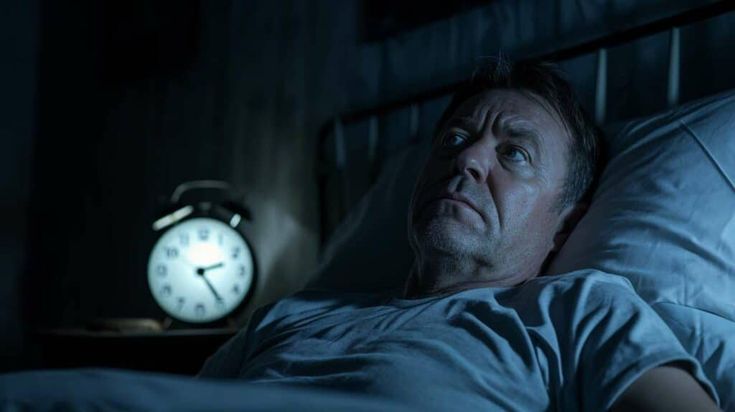
UNDERSTANDING:
As we get older, getting enough rest becomes increasingly challenging. A significant portion of aging adults suffer from insomnia affecting both mental and physical wellbeing; occasional insomnia may not cause serious consequences but chronic sleeplessness may increase cognitive decline, immune weakness and risk for chronic conditions – this article addresses causes and solutions for insomnia among aging adults to improve the overall sleep quality.
WHAT IS INSOMNIA?
Insomnia, or insomnia, is a sleep disorder characterized by difficulty in falling and staying asleep, awakening too soon or restorative sleep not occurring, disrupted daily lives and overall well-being of aging adults, as well as other causes for non-restorative restful slumber.
INSOMNIA CAUSES:
With age comes change to our sleeping cycles and as people age their cycles adjust accordingly, older adults often sleep less deeply and wake more frequently throughout the night than they used to – an inevitable part of growing older, yet this could contribute to feelings of insomnia and can become problematic over time.
Chronic Health Conditions Medical issues like arthritis, diabetes, heart disease and chronic pain may impede sleep quality for older adults. Sleep apnea and restless leg syndrome can further deteriorate sleep quality by increasing risk.
Medication Side Effects
Many seniors take medications for various health conditions. Unfortunately, certain drugs prescribed to manage high blood pressure, depression or asthma may have side effects which cause insomnia in senior users.
Anxiety, depression and loneliness are prevalent among aging adults and can make sleeping difficult or impossible for many reasons. Lifestyle factors including irregular sleeping schedules, insufficient physical activity and excessive caffeine or alcohol intake all play a part in contributing to insomnia in these cases. Utilising environmental considerations also plays a part.
Noise, light and an uncomfortable sleeping environment may all impact older adult’s quality of restful slumber, leading to insomnia affecting elderly individuals in various ways. Long term insomnia in older adults may have far reaching consequences such as:
Cognitive Decline: Sleep is essential to memory consolidation and brain function; insufficient rest can increase your risk for dementia or Alzheimer’s. Weakened Immune System: Lack of rest leaves older adults more prone to illnesses.
Mood Disorders: Insomnia often heightens anxiety and depression, creating a cycle of poor restful sleep that compromises mental wellbeing. Increased Risk of Accidents: Daytime fatigue may contribute to falls or other accidents among seniors which could prove particularly deadly.
Practical Solutions to Combat Insomnia There’s good news when it comes to insomnia in older adults: often lifestyle modifications and interventions may suffice in providing relief. Below are a few effective strategies: Creating an Efficient Sleep Schedule is also key: here are a few effective solutions:.
Establish a consistent sleep/wake time each night, even on weekends, in order to regulate your internal clock and help ensure its functionality. Doing this helps your body know when it should rest or wake up!
Launch A Relaxing Bedtime Routine Engage in activities before bed that can relax you such as reading, listening to soothing music or practicing relaxation techniques such as meditation and deep breathing to maximize sleep environments and boost relaxation levels. Optimize Your Sleep Environment
Staying dark, quiet, and cool in your bedroom will improve sleep quality significantly. Spending on comfortable mattress and pillows can further aid your rest. Limit Caffeine and Alcohol Avoid indulging in caffeine or alcohol after 3 PM in order to improve restful slumber.
Exercise Regularly Incorporating regular physical activity will further aid your restful slumber.
Blue light from smartphones, tablets and computers can inhibit melatonin production, making it harder for you to sleep. Aim to turn off all devices at least an hour prior to bedtime for best results.
When to Seek Professional Help
If insomnia persists for more than several weeks or impedes daily activities, professional intervention must be sought immediately. A doctor may conduct a sleep study or recommend treatment options or refer you to a sleep specialist as necessary.
Conclusion Insomnia among older adults can be an ongoing but manageable condition. By understanding its causes and effects and making simple lifestyle adjustments to increase quality sleep and overall health benefits for seniors suffering insomnia, good restful nights may become available again – don’t allow insomnia rob you of that precious restful restful nightly respite!
MOST RELATED:https://healthybodyboost.net/wp-admin/post.php?post=2203&action=edit
VIST FOR BEST HELP:https://nutritionnest.site/wp-admin/post.php?post=587&action=edit
 healthybodyboost.net Healthy Body Boost
healthybodyboost.net Healthy Body Boost



